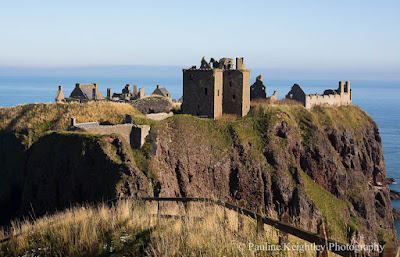We hoped the internet would open new horizons – and it does – but it also the internet means ideas go down dark, narrow rabbit holes and echo chambers. Our Scots bard was a free thinker – because he was well read and informed. A Man O Independent mind.
Edinburgh festival promoter, Richard Demarco advocates for a new – ‘Festival of Thought’ – to bring together the best minds and creative thinkers to counter this crushing of ideas by blind right wing dictatorships that aim to shut down open debate and silence creativity. Edinburgh was the home fo the Scottish enlightenment 1750 to 1790.
*Freedom to be Creative
- Scottish cultural icon Richard Demarco, and long time Edinburgh festival supporter, has attended every festival since 1947. He advocates we need informed debate to counter the rise of the right across Europe and the world.
He wants to see Edinburgh host an annual “Festival of Thought”. His idea is to bring to the city the world’s finest liberal thinkers from the humanities, from the Arts and culture, from all the sciences and technologies. “There should be no separation between science and the Arts. Leonardo Da Vinci, perhaps the greatest artist ever to live, was a great scientist, an engineer and artist.”
He calls for ‘a Festival of Thought’ to help save liberal democracy. The Freedom to find Truth and Light. “Truth is the foundation stone for all creativity, for all the unlocking of great culture, in any genre, in any society, in any land.
*Its about Truth - To remind the world of the role of culture in love, in peace and in liberal thought and liberal society.
Demarco see the rise of the far right and Reform as a threat to the freedom that necessary for creativity. A Scots Italian who sees himself as a European and Reform as the enemy of the beliefs that he has held dear throughout his life.
“Reform is a danger to the Edinburgh Festivals” he says.
Demarco fears the world is on the edge of a new dark age. There is the rise of the authoritarian right and with that the capacity of humankind to dim the flame of enlightenment, “to quench the human spirit.” ….Ukraine is more than a fight for territory and national sovereignty: it is essentially a fight for democracy, for freedom of the mind, the heart and the soul. He profoundly believes in liberal democracy as the only civilized way of managing society so that human beings are truly free.
The Far Right - is trying to shut down freedom thought
“The rise of the far right is a threat to the freedoms needed for creativity”.
How much does the media truly reflect truth today, and not simply meaningless Soundbites and Clickbaits - and the lack of informed debate. How is impartiality possible when one side peddle obvious lies. Politicians speak of growth or austerity (or both) while following policies that are the opposite – there’s been no growth. Many countries are in crisis, which allows the views of the Far Right. We can’t sit on the fence.
Demarco calls for his friend Robert Sturus to come to Scotland for the festivals 80th birthday in 2026. Sturus is the director of the Rustaveli state Theatre of Georgia. In 1979 he brought Shakespeare’s Richard III to Edinburgh.
Out of the darkness of the war and the crushing of democracy, human rights and freedoms came a world in desperate need of unity.,,, the first Edinburgh Festival. “It was an expression of the flowering of the best instincts of the human spirit.”
He’d like to see Edinburgh rediscover that spirit and its idealism…..“When the Festival started in 1947, I thought that the city could be the cultural capital of the world. It brought the world’s greatest musicians, actors, singers, dancers, playwrights, poets, authors and artists to my home” says Demarco.…when hope was in the air and the post-war world of Edinburgh and Europe was alive with optimism and possibilities.”
“We must bring Sturus to Edinburgh in 2026. To reaffirm the roots of the festival, as a celebration of European culture and art every form. To hear him speak freely.”
III Richard Demarco is near his 95th birthday and he still burns with urgent intellectual intensity and his passion for the civilizing qualities of culture and human creativity still burns strong. Demarco says that out of the darkness of the war and the crushing of democracy, human rights and freedoms came a world in desperate need of unity.,,, the first Edinburgh Festival. “It was an expression of the flowering of the best instincts of the human spirit.”
* * * *
**Martin Roche interviewed Richard Demarco – artist, author, organiser and cultural innovator – on the eve of his 95th birthday. Fiercely pro-European, Demarco proposed a new “Festival of Thought”. 14th July 2025 - “A Reform government is a danger to the Edinburgh Festivals,” says Richard Demarco He calls for ‘a Festival of Thought’ to help save liberal democracy.
Extracts from.
**Article From a Perthshire Castle, Gauntlet of Truth is thrown down to Authoritarianism
Sunday National 31.8.25, Martin Roche
















.jpg)
